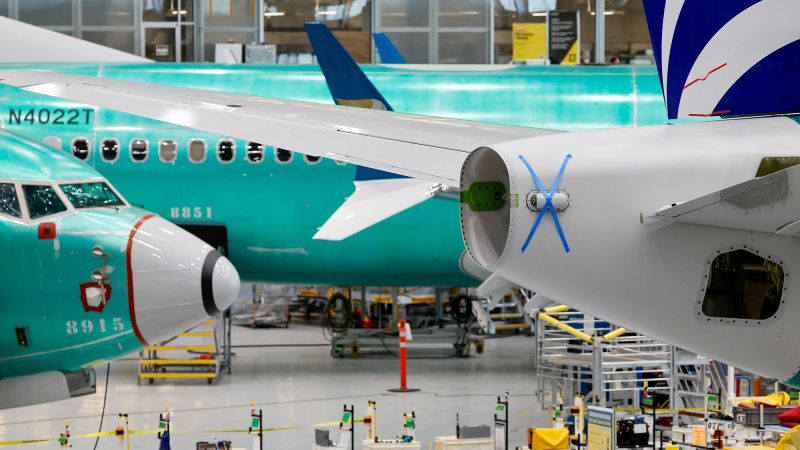Boeing and the families of the victims of two fatal 737 Max crashes more than five years ago are waiting to see what punishment the company will face for its misdeeds that preceded the crashes. A federal judge in Texas pressed US Justice Department officials to justify Boeing’s agreement to plead guilty to fraud in the wake of the crashes but stopped short of ruling on whether to accept the deal. The judge has received legal briefs from both sides and will issue a ruling soon.
Boeing agreed in July to plead guilty to conspiring to defraud regulators in relation to the crashes that occurred in 2018 and 2019. Lawyers for families of the victims argued against accepting the plea deal, stating that it did not hold Boeing or its executives sufficiently accountable for the deaths. However, Justice Department officials defended the agreement as fair and just, stating that the government took the families’ concerns into account during the negotiation process.
The plea agreement includes up to $487 million in fines for Boeing, a fraction of the $24.8 billion that families of the victims are seeking. Additionally, Boeing agreed to spend $455 million on compliance and safety programs over the next three years and to operate under the supervision of a court-appointed monitor for three years to improve the quality and safety of its aircraft. The families argue that the fines are too lenient considering Boeing’s profits and the gravity of the crashes caused by design flaws on the planes.
Boeing has faced numerous challenges over the last six years, including not only the fatal crashes but also questions about the safety and quality of its planes. The Justice Department argues that the penalties imposed on Boeing are the most serious available, including oversight by a monitor and increased spending on safety compliance. Boeing admitted responsibility for the fatal crashes and acknowledged withholding information about the design flaws from the FAA during certification of the 737 Max.
After reaching an agreement with federal prosecutors in January 2021 to settle criminal charges related to the crashes, Boeing entered a three-year probationary period to improve quality issues and transparency with the government. However, an incident involving an Alaska Airlines flight led to investigations into Boeing’s practices just before the end of the probationary period, resulting in the current prosecution under the original agreement. The company has since pledged to strengthen its safety and compliance practices and accept responsibility for the crimes committed during the certification process of the 737 Max planes.
In conclusion, the case against Boeing highlights the importance of accountability in the aerospace industry and the need to ensure the safety of aircraft for passengers and crew. The outcome of the plea agreement and the oversight by a court-appointed monitor will determine if Boeing is able to rectify the issues that led to the tragic crashes of the 737 Max planes. The families of the victims are seeking justice and closure, while Boeing faces a tarnished reputation and the challenge of rebuilding trust in its commercial planes.


